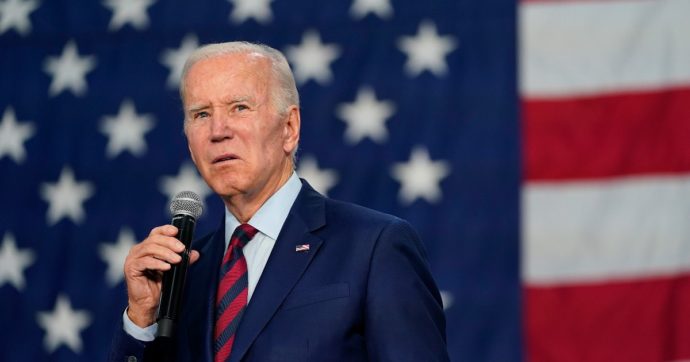We might find ourselves in a situation where we didn’t intend to use nuclear weapons, but we actually did

It had been announced years ago. The arrival of the new B61-12 U.S. tactical nuclear weapons in Italy and in Europe is hardly news. However, last week international news outlet “Politico” reported that the Biden administration has accelerated replacement of the old B61 tactical nuclear weapons stored in six bases in five European countries with the new B61-12. Italy is the European country with the highest number of U.S. tactical nuclear weapons on its soil and the only one with two nuclear bases: Aviano and Ghedi. Fatto Quotidiano sat down with a prominent American expert on nuclear weapons: Stephen Schwartz.
Why do you think the Biden administration is accelerating the replacement of B61 in Europe?
“Last week the Carnegie Endowment for International Peace held their international nuclear policy conference. There was a panel on the Nuclear Posture Review [the document which defines the nuclear policies of the Biden administration], and one of the speakers was Richard Johnson, the Deputy Assistant Secretary of Defense for Nuclear and Countering Weapons of Mass Destruction Policy. He was one of the people involved in putting the Nuclear Posture Review together. As part of his remarks, he referenced that “Politico” article and said that it is wrong, that there has been no change in schedule. The schedule is the same as it has always been, that it was just bad reporting. I don’t which is right. My sense is, to answer your question specifically: if that article was correct, the acceleration is to reassure NATO that we have nuclear weapons that can match or counter whatever Russia may decide to throw at us, and be a signal to Russia that we have nuclear weapons that are more accurate, that we will be able to use very shortly, and so they have to think three or four times before they start threatening.
They were supposed to arrive in Italy in March 2023…
“The weapons are essentially the same, what has changed with B6-12 is that it is the world’s first precision guided gravity bomb, which means we will be able to target things within tens of metres, as opposed to hundreds of metres, which means we could do very very precise attacks on specific facilities and, in theory, very much in theory, not create a lot of collateral damage, if the warhead’s yield is low enough. I’ve worried about weapons like these for a long time, because I think in the minds of military planners, if not the political leaders, these characteristics make them seem more usable; it’s small, it’s precise, it wouldn’t cause a lot of damage. But it doesn’t matter how big it is, what it is targeting and all that, it is still a nuclear weapon. Political leaders, for a variety of reasons, don’t feel defended unless they have them. And I think that’s unfortunate, because we have very capable conventional forces – NATO and the United States – that are more than capable of dealing with anything that Russia could throw at us. It’s precisely because Russia is conventionally weak right now, that Putin is relying on nuclear threats”.
Do you think that if B61-12 weapons really are deployed by December or early 2023, they will make it even more difficult to achieve a diplomatic solution of the Russia-Ukraine war?
“No, I don’t think so, I don’t expect those weapons to play any significant role in any resolution of the war. We are replacing older versions of the B61 with new ones, so it is not like we are putting new weapons there. I have no idea when they will be deployed, in theory it would be possible to track them. We use very special military transport aircrafts, C-17, to move these weapons around the world. The force is called the “Prime Nuclear Airlift Force”, based on the Joint Base Lewis-McChord. They are very large, specially equipped cargo aircrafts, which would fly new weapons in and transport them. So, in theory, it should be possible to track the transponders, be possible to see where the planes are going, but I am sure NATO and the United States are working very hard not to publicise that, even though Russia is probably tracking them pretty closely”.
Are you concerned that the Russia-Ukraine war could escalate to a nuclear exchange between United States and Russia?
“I think that is a significant possibility and it is possible in a number of ways. Despite our best plans, we might find ourselves in a situation where we didn’t intend to use nuclear weapons, but we actually did. That’s actually more worrisome to me than a situation where we intended to use them. In that case you don’t know where you are going, on either side, particularly when there is a lot of uncertainty, and neither side is talking to the other, things can go very wrong very quickly. We were very very lucky 60 years ago this month that nuclear weapons were not used [during the Cuban missile crisis], luck is not a long term strategy for national and international survival, your luck will eventually run out”.

